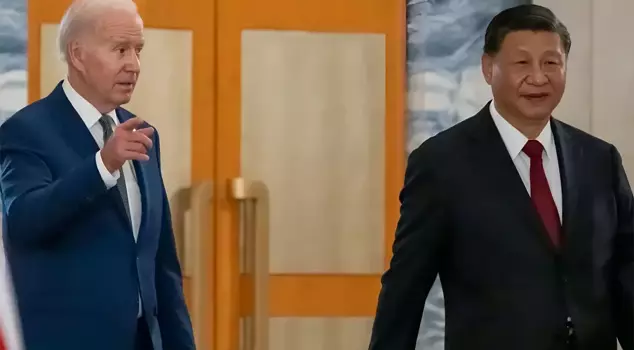
18.01.2025 15:14
The Chinese Ministry of Commerce reacted to the investigation launched by the Biden administration into China's maritime and shipbuilding sectors. The ministry stated that the investigation is a sign of unilateralism and protectionism, arguing that it violates international trade rules. It emphasized that necessary steps would be taken.
The spokesperson for the Chinese Ministry of Commerce stated that they strongly oppose the investigation initiated by the Biden administration in the United States into China's maritime, logistics, and shipbuilding sectors, describing the investigation under Article 301 as a clear indication of unilateralism and protectionism.
The spokesperson noted that the investigation, which was launched considering domestic political interests and aims to hinder China's development, undermines the multilateral trading system and violates international trade rules. They also criticized the recent sanctions imposed by the U.S. on numerous Chinese companies.
"THE U.S. SHARE IN THE SECTOR HAS ALREADY DECLINED"
The World Trade Organization (WTO) has determined that the additional tariffs imposed by the U.S. under Article 301 against China previously violated WTO rules.
The spokesperson for the Chinese Ministry of Commerce remarked that the investigation report announced on Thursday is filled with baseless accusations against China. They emphasized that the decline of the U.S. shipbuilding sector has nothing to do with China, pointing out that the global market share of U.S. companies had significantly declined long before China emerged as a major player in the sector.
CHINA: WE WILL TAKE NECESSARY STEPS
The spokesperson stated that China's maritime market has always been open to foreign ships and companies without discrimination, and that the industrial policies in this market treat both domestic and foreign enterprises equally.
In contrast, the spokesperson reminded that the Biden administration provides substantial subsidies to domestic sectors through the Inflation Reduction Act and the CHIPS and Science Act, most of which contain discriminatory elements. They expressed that these measures undermine the effectiveness and authority of WTO rules and are a real example of market-distorting practices. The spokesperson stated that they will closely monitor the actions of the U.S. and take necessary steps to protect the legal rights and interests of Chinese companies.